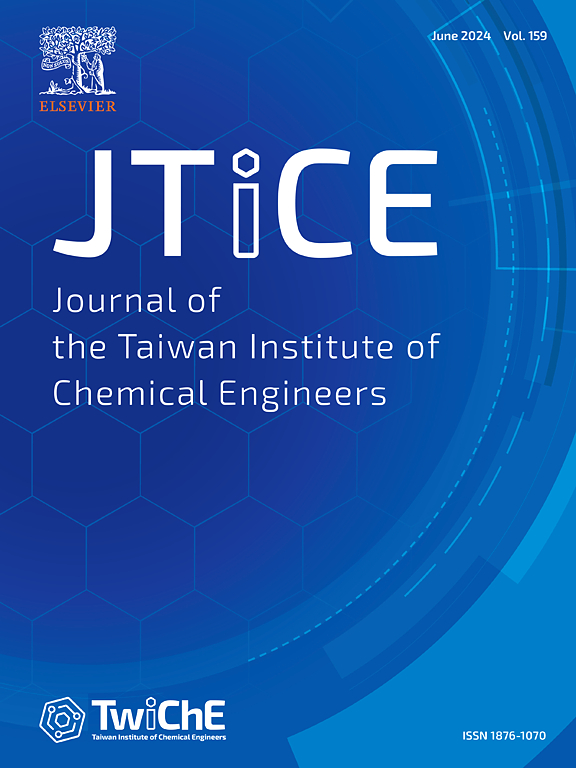A novel knowledge-driven intuitionistic fuzzy multi-criteria decision-making method for evaluating the operating condition of the aluminum electrolysis cell
IF 5.5
3区 工程技术
Q1 ENGINEERING, CHEMICAL
Journal of the Taiwan Institute of Chemical Engineers
Pub Date : 2025-07-09
DOI:10.1016/j.jtice.2025.106256
引用次数: 0
Abstract
Background:
Accurate evaluation of aluminum electrolysis cell operating conditions is essential for maintaining safe and stable production processes. However, the limited number of manually annotated operating condition labels, derived from various process indicators, hinders the effectiveness of prediction models across diverse datasets of aluminum electrolysis cells.
Method:
This study proposes a novel knowledge-driven intuitionistic fuzzy multicriteria decision-making (MCDM) method, which utilizes expert-defined aluminum electrolysis cell operating standards to evaluate operating conditions without dependence on labels. By leveraging expert-defined operating standards for aluminum electrolysis cells, unified decision matrices that integrate process indicators with these predefined standards are constructed. To determine optimal indicator weights, Intuitionistic Multiplicative Preference Relations (IMPRs) with the Criteria Importance Through Inter-criteria Correlation (CRITIC) method are combined together, effectively balancing subjective expert knowledge and objective data-driven insights. Finally, the fuzzy Elimination and Choice Translating Reality (ELECTRE) II method is utilized to create comprehensive ranking relationships between operating standards and process data, thereby improving the accuracy and reliability of operating condition evaluations.
Significant findings:
Case studies validate the effectiveness of the proposed method in evaluating operating conditions.

一种新的知识驱动的直觉模糊多准则决策方法,用于铝电解槽运行状态评价
背景:准确评估铝电解槽的运行状态对于维持生产过程的安全稳定至关重要。然而,人工标注的操作条件标签数量有限,源自各种工艺指标,阻碍了预测模型在铝电解槽不同数据集上的有效性。方法:提出了一种新的知识驱动的直觉模糊多准则决策(MCDM)方法,该方法利用专家定义的铝电解槽运行标准来评估运行状况,而不依赖于标签。通过利用专家定义的铝电解槽操作标准,构建了统一的决策矩阵,将过程指标与这些预定义的标准集成在一起。为了确定最优的指标权重,将直觉乘法偏好关系(IMPRs)和标准重要性通过标准间相关性(critical)方法结合在一起,有效地平衡了主观专家知识和客观数据驱动的见解。最后,利用模糊消除和选择转换现实(ELECTRE) II方法,在运行标准和工艺数据之间建立综合排序关系,从而提高运行工况评价的准确性和可靠性。重要发现:案例研究验证了所提出的方法在评估操作条件方面的有效性。
本文章由计算机程序翻译,如有差异,请以英文原文为准。
求助全文
约1分钟内获得全文
求助全文
来源期刊
CiteScore
9.10
自引率
14.00%
发文量
362
审稿时长
35 days
期刊介绍:
Journal of the Taiwan Institute of Chemical Engineers (formerly known as Journal of the Chinese Institute of Chemical Engineers) publishes original works, from fundamental principles to practical applications, in the broad field of chemical engineering with special focus on three aspects: Chemical and Biomolecular Science and Technology, Energy and Environmental Science and Technology, and Materials Science and Technology. Authors should choose for their manuscript an appropriate aspect section and a few related classifications when submitting to the journal online.

 求助内容:
求助内容: 应助结果提醒方式:
应助结果提醒方式:


